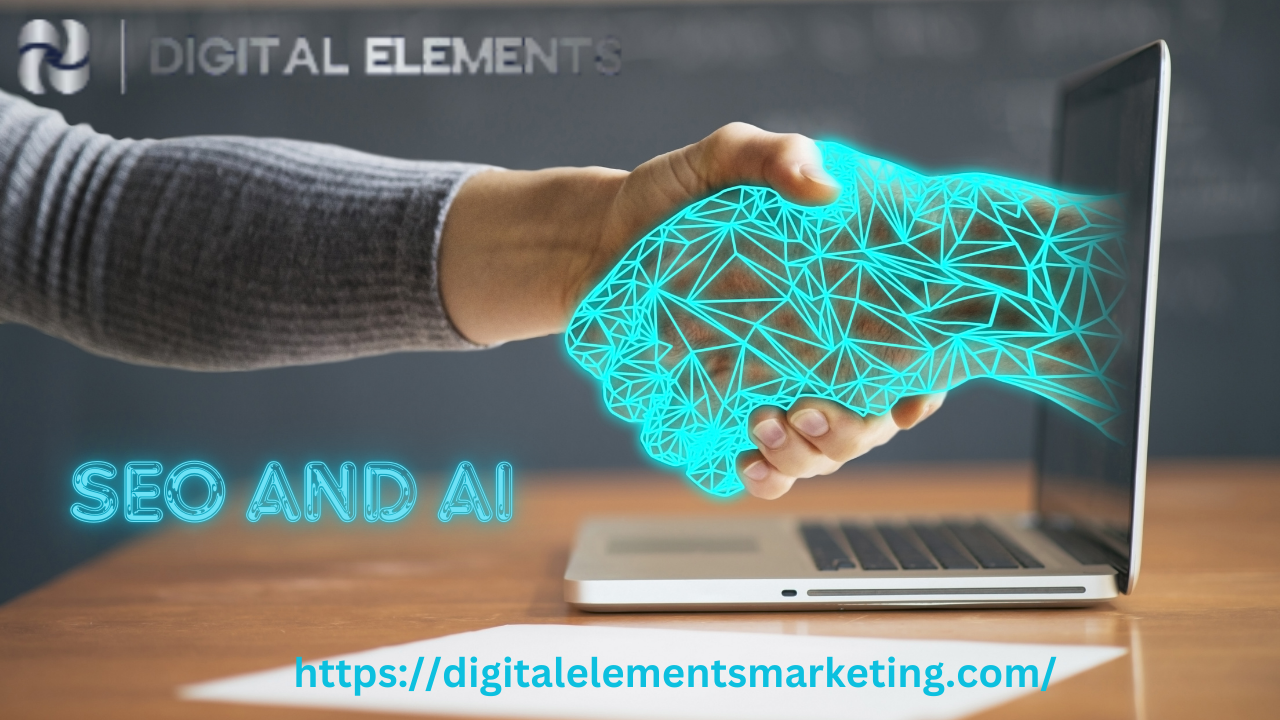Search Engine Optimization known as SEO has been the cornerstone of online visibility for businesses for years. However, as technology advances, the integration of Artificial Intelligence (AI) into SEO practices has revolutionized how search engines rank websites and how businesses optimize their content. The convergence of AI and SEO is not just a trend; it is reshaping the digital landscape, making SEO strategies smarter, faster, and more efficient. In this article, we will delve into the profound impact of AI on SEO and explore how it is transforming the way we approach search engine optimization.

Understanding AI in SEO
AI is known as the simulation of human intelligence by machines, enabling them to learn, reason, and adapt. In the SEO context, AI helps search engines better understand user queries, content relevance, and website quality. Google’s AI based algorithms, such as Rank Brain, BERT, and MUM, have made search engines more intuitive, focusing on user intent and context rather than just keywords. These AI-driven updates ensure that search engines deliver more accurate and relevant search results, making SEO a more dynamic field.
AI-Powered SEO Tools and Techniques
AI-driven SEO tools have revolutionized traditional SEO practices, enabling marketers to analyze data more effectively and design targeted strategies. Here is how AI is making a difference:
-
- AI-Driven Keyword Research: AI tools analyze search patterns, user behavior, and competitor strategies to identify high-potential keywords. This helps in targeting long tail and semantic keywords that align with user intent.
-
- Predictive Analysis: AI predicts future trends and user behavior, allowing SEO experts to adjust their strategies proactively.
-
- Competitor Analysis: AI-powered tools can quickly analyze competitors’ websites, identifying backlink opportunities, content gaps, and SEO strategies, making it easier to stay ahead.
-
- AI Chatbots: These bots enhance user engagement, reduce bounce rates, and improve website interactions, indirectly boosting SEO rankings.
AI’s Role in Content Creation and Optimization
Content is king, but with AI, it is now more of an intelligent monarch. AI tools like GPT-3 and other content generators assist in producing high quality, SEO-optimized content that resonates with both search engines and users.
-
- Semantic SEO and Topic Modeling: AI helps in understanding the relationships between different topics and keywords, ensuring that the content is comprehensive and contextually relevant.
-
- Enhanced Content Quality: AI-powered tools analyze readability, keyword density, and user intent, ensuring that the content meets SEO standards and engages the target audience effectively.
Improving User Experience with AI and SEO
User experience (UX) is a critical ranking factor, and AI plays a significant role in enhancing it:
-
- Personalization and User Intent: AI tracks user behavior to deliver personalized content, ensuring that visitors find what they are looking for, which leads to higher engagement and lower bounce rates.
-
- Website Structure and Navigation: AI tools analyze user interaction data, suggesting improvements in site structure and navigation that make websites more SEO-friendly.
-
- AI-Powered Chatbots: These bots guide users through the website, offering instant support, reducing bounce rates, and improving user experience, which positively influences SEO rankings.
Voice Search and AI: The Next SEO Frontier
Voice search is gaining popularity, thanks to AI based virtual assistants like Siri, Alexa, and Google Assistant. This shift has a significant impact on SEO strategies:
-
- The Rise of Voice Search: Voice search queries are often conversational and longer than text-based searches. AI helps optimize content for these natural language queries.
-
- AI’s Role in Voice Search Optimization: AI understands the context and nuances of voice searches, helping SEO professionals create content that answers specific, long-tail queries.
Tips for Optimizing for Voice Search Using AI:
-
- Focus on question-based keywords.
-
- Create concise, informative answers to common questions.
-
- Optimize for local search, as many voice queries are location-based.
The Role of AI in Technical SEO
AI is not just about content and keywords; it is also revolutionizing technical SEO aspects:
-
- Website Audits: AI-powered tools quickly identify technical issues, such as broken links, crawl errors, and duplicate content, making it easier to maintain a healthy website.
-
- Improving Website Speed: AI optimizes images, scripts, and other elements, enhancing website speed – a critical factor for SEO.
-
- Mobile SEO: AI-driven tools ensure websites are mobile-friendly, as Google prioritizes mobile-first indexing.
Challenges and Limitations of AI in SEO
While AI offers numerous advantages, it is not without challenges:
-
- Over-Reliance on AI: Relying solely on AI can result in generic content that lacks human creativity and emotional connection.
-
- Human Expertise is Still Essential: AI may analyze data and suggest improvements, but human insight and intuition are crucial for effective SEO strategies.
-
- Ethical Concerns: AI-generated content might raise ethical questions about originality, authenticity, and plagiarism.
Future Trends: What is next for AI and SEO?
As AI continues to evolve, it is expected to reshape the SEO landscape even further:
-
- AI-Powered SERP Features: We can expect more AI-driven features in search engine results pages, such as interactive snippets and visual search results.
-
- Enhanced Content Personalization: AI will deliver even more personalized search experiences, requiring SEO experts to create highly targeted, user-focused content.
-
- Voice and Visual Search Dominance: AI will continue to play a pivotal role in voice and visual search optimization, making it essential for SEO strategies to adapt.
AI is undeniably transforming the SEO landscape, making it more data-driven, efficient, and user-centric. While AI-powered tools offer unprecedented insights and automation, combining them with human expertise is the key to a successful SEO strategy. Staying updated with AI trends and incorporating them into your SEO practices will be crucial for businesses looking to stay ahead in the competitive digital landscape. As AI continues to evolve, so too must our approach to SEO, ensuring that we remain adaptable and prepared for the future of search engine optimization.




